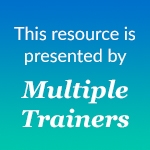

NVC Resources on Relationships
-
Interactive dialogue addresses common questions for new NVC facilitators and trainers.
-
Ask the Trainer: Is a confidentiality agreement typically used in NVC practice groups?
-
Experience NVC tools for mediating conflict—whether you're involved or supporting others.
-
Master fear through exercises, empathy, creativity and the power of truth telling.
-
This Introduction to NVC Mediation provides a conceptual overview and experiential taste of the NVC mediation learning model developed by John Kinyon and Ike Lasater.
-
Please join us as we take a look at what disrupts our joy during the holidays… and discuss the delicious possibilities that abound when we declare our intention to "Greet the Holidays with an Open, Joyful Heart."
-
Trainer Tip: Giving up on blame and taking responsibilty for our choices is immensely empowering. Mary offers a tip for growing in this direction.
-
Trainer Tip: Clarifying our requests can make the difference between frustration and satisfaction, Mary shows you how.
-
Miki explains how teachers and administrators can become more effective in relating to themselves, other faculty and staff, and they can contribute more to students' ability to feel connected and energized. Nonviolent Communication provides specific tools to empower ourselves and others to live more in line with our values and deeper needs.
-
Discover and embrace the inner chatter beneath your words to deepen self-connection.

Quick Links
Subscription Preferences
Stay In Touch!
Looking for ways to keep up with NVC Academy news, get special offers, free resources, or words of inspiration? Here are five ways to stay engaged:









